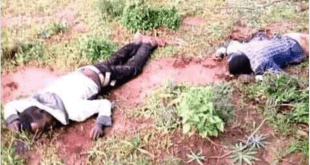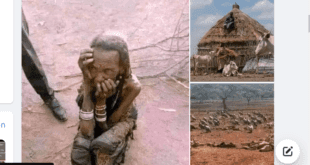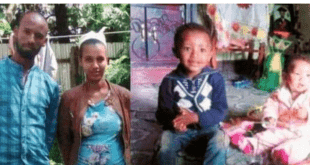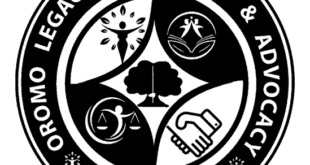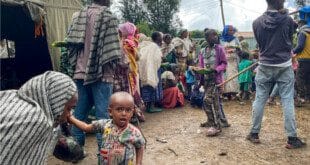His Excellency Mr. Ban Ki-moon, Secretary-General
Office of the Secretary General of United Nations
885 Second Avenue
New York, NY 10017, USA
Your Excellency Ki-moon:
I am writing on behalf of the Oromo Studies Association (OSA), a scholarly organization established by Oromo and non-Oromo scholars to promote studies on and relevant to the Oromo people. We are gravely concerned that the Tigrayan-led minority Ethiopian government continues forcefully evicting Oromo farmers and other indigenous peoples from their ancestral lands and leasing them to national and transnational investors without their consent and with little or no compensation. Hundreds of thousands of Oromo farmers and other indigenous communities continue losing their farming and grazing lands they have owned for centuries and thrown out on the streets exposing their families and extended families to humiliation, starvation and death. In many instances family heads are given a 30 day notice to evacuate from their land. Those who refused to comply with the short notice faced intimidation, beatings, arrests, and in some cases death.
The Oromo people are the single largest ethno/national group in the Ethiopian empire and in the Horn of Africa constituting more than 40% of the Ethiopian population. Oromia, homeland of the Oromos in Ethiopia, covers a large geographical area. By all accounts, Oromia is the single richest region in the Empire with abundant fertile land, livestock products, coffee, oil seeds, mineral resources, and a diverse wild life. Compared with other regions of the empire, Oromia gets relatively high rainfall and a relatively large proportion of its surface is covered with forest. The current government in Ethiopia is controlled by the Tigrayan People’s Liberation Front (TPLF), a group originating from the Tigrai regional state in the north. Contrary to Oromia, the Tigrai regional state is characterized by barren land with meagre natural resources and the Tigrayan population constitute only about 6% of the Ethiopian population. The Tigrayan-led minority government is therefore practicing a discriminatory and destructive land-grab policy as a way of exploiting the abundant wealth and natural resources of the Oromo and other communities by forcefully evicting families from their lands and signing land-lease contracts with Tigrayan and foreign investors.
Despite the fact that Tigrai is the poorest region in the empire, many Tigrayan business men and women have turned themselves into rich investors building their personal business empire over the last 21 years of the TPLF rule. The current destructive land-grab policy of the regime is a continuation of the amassing of personal wealth of the members of the ruling elite at the cost of destroying the livelihood of the families of indigenous communities such as the Oromo. It has nothing to do with investment or development as the government tries to mislead the international community. This land-grab policy is harmful and wrong in many ways including that:
- It displaces, marginalizes and exposes vulnerable peasants to inescapable suffering and death;
- It exacerbates food insecurity, ethnic conflict and mass starvation;
- It is discriminatory as it applies only to the Southern regions of Ethiopia, such as Oromia, Gambella, and Benishangul;
- The Ethiopian government that makes and implements such policy decisions and signs land lease contracts on behalf of the peoples of the Southern Ethiopia comes entirely from the Tigrayan ethnic group of the North.
OSA members and the millions of Oromo farmers and others are deeply concerned by this reckless policy because of its obvious discriminatory implications that fuel conflict among various ethno-national groups. I am writing to request that the UN involve in stopping the illegal seizure of lands of indigenous peoples by implementing the UN Universal Declaration of Human Rights and the Rights of Indigenous Peoples.
The historical impacts of land-grab in Ethiopia were characterized by brutal conflicts, cultural extinction, and even genocide through mass killings. The war of occupation and land-grab in the last decades of the nineteenth century resulted in the death of about five million (50%) people in Southern Ethiopia. The current problems associated with land-grab are especially complex in Southern Ethiopia; the local people are not represented in the government of Ethiopia that is dominated and led by Tigrayans. Mistrust between Tigreans who come from the north and the Southern peoples of Ethiopia is rampant, shaped by a bitter history of war, occupation, cultural domination, and inherited hostility. The non-Tigrayan population of Ethiopia see the decision of the Tigrayan government of Ethiopia as a deliberate and conniving move to dismantle the cultural fiber of the South and expand Tigrayan cultural and economic domination. Land-grab is indeed perceived among the Southern Ethiopian population as a hostile trap targeting their most sacred property, their land.
Since 1996, the total area of agricultural land transferred to the investors is 4 million hectares. A total land transferred to investors will be 7 million hectares of agricultural land by the end of 2015. Over 94% of the land assigned to Tigrayan and foreign investors is located in Southern Ethiopia i.e., the non-Tigrayan and non-Amhara regions. To seal the deal, the Ethiopia regime offers protection to investors by being a member of the Multilateral Investment Guarantee Agencies that the agreements guarantee investors’ right without providing opportunities for those affected by activities of investment projects to challenge the agreements and to call for adequate compensation. For example the agreement signed with the Netherlands on the encouragement and reciprocal protection of investment offers considerable incentives to the private corporations wishing to invest in Ethiopia: i.e., it guarantees transfers of profits, interests, or dividends in freely convertible currency of payments related to investments, that a Dutch company investing in Ethiopia would not have to pay tax and that profits can flow back to the Netherlands without any restrictions.
Your Excellency:
We know of no government policy in the world, where the majority of the citizens are subjected to different set of rules based on ethnic identity; this government imposes these preferential rules firmly to protect the interests of Tigrayan and foreign investors more than the people of the country it allegedly represents. Consequently, the Tigrayan-dominated regime of Ethiopia has forfeited its representation of the Oromo people; the agreements it enters on behalf of the Oromo people shall not be binding. In the meantime, we kindly and respectfully appeal to the United Nations and the international communities to:
- Demand that the Ethiopian government stop its land-grab and distribution policies with no delay;
- Impose their good offices on the Ethiopian government so that the government compensates all the victims of the land-grab;
- Demand that the Ethiopian government recognizes the indigenous people’s ownership of their ancestral land;
- Discourage foreign investors from continuing to lease lands from the Ethiopian government because the lands that are leased are given to them by displacing the native people;
- Actively engage in the establishment of independent commissions of justice both at regional and global levels to investigate these criminal acts of forceful land-grabs that threaten the existence of indigenous peoples in Ethiopia in order to enable victims of land-grabbing to be able to access fair justice.
Respectfully,
Mosisa Aga, Ph.D.
OSA President
CC:
- President Barack Obama
The White House 1600 Pennsylvania Avenue, NW
Washington, DC 20500, USA - Honorable Prime Minister of UK
Mr. David Cameron
10 Downing Street
London, UK - President José Manuel Barroso
President of the European Commission
1049 Brussels, Belgium - Amnesty International
International Secretariat
1 Easton Street
London WC1X 0DW, UK - Amnesty International USA
Penn Plaza
New York, NY 10001, USA - Human Rights Watch
350 Fifth Avenue, 34th Floor
New York, NY 10118-3299, USA - World Bank
1 Dag Hammarskjold Plz # 26
New York, NY 10017-2201, USA - International Monetary Fund, 700 19th Street, N.W.,
Washington, D.C. 20431, USA - International Monetary Fund, 1900 Pennsylvania Ave NW,
Washington, DC, 20431, USA - United Nations Development Programme
One United Nations Plaza
New York, NY 10017, USA - African Union (AU), previously called Organization of African Unity
The African Union Commission, PO Box 3243
Addis Ababa, Ethiopia - Office of the United Nations High Commissioner for Human Rights (OHCHR)
Palais des Nations
CH-1211 Geneva 10, Switzerland
